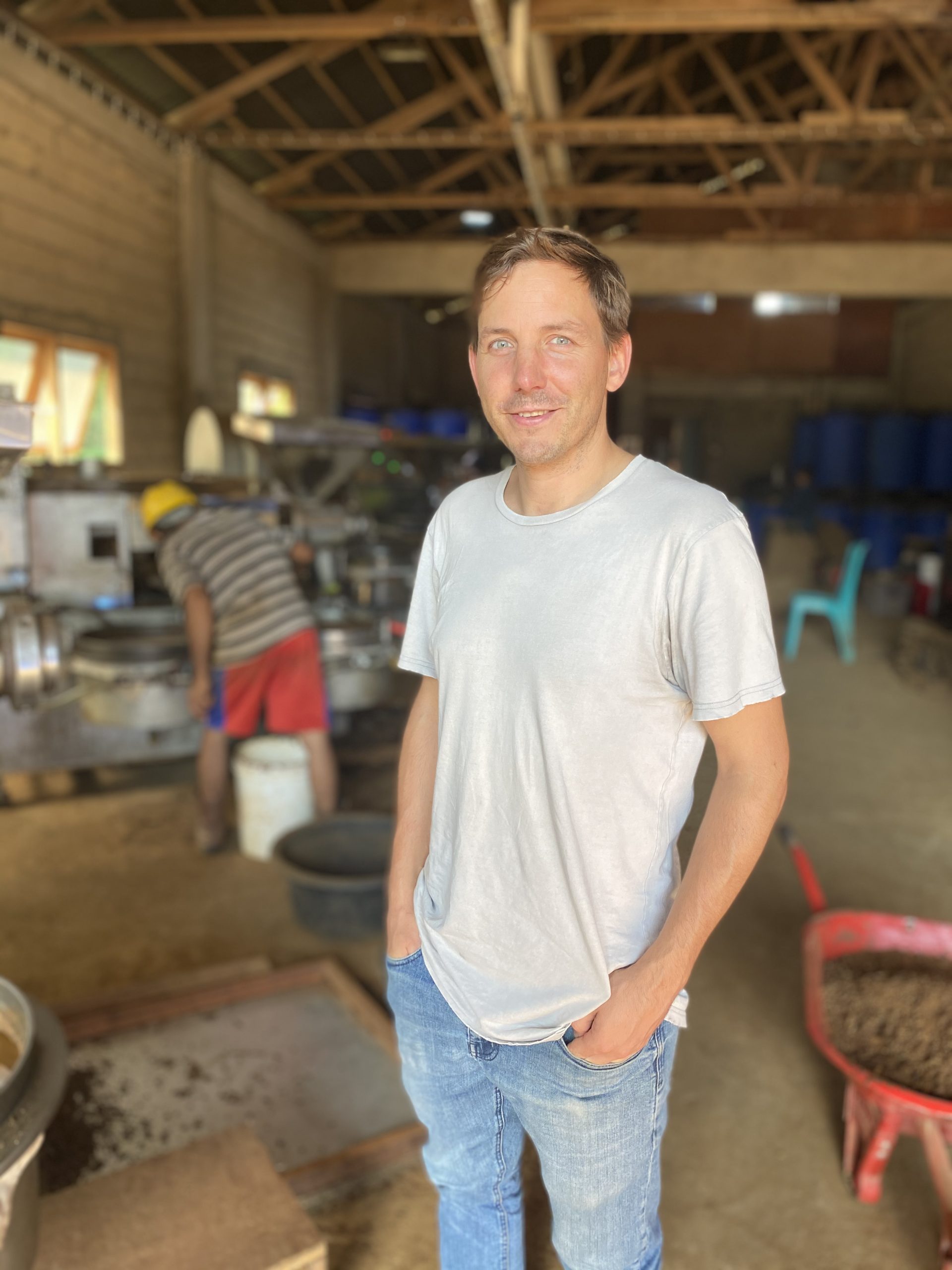How do you turn the rainforest into such a valuable resource that it is no longer cut down for agriculture? TU Delft alumnus Dirk-Jan Oudshoorn thinks he knows.
Dirk-Jan Oudshoorn: “Agreeing new contracts is proving difficult thanks to the coronavirus crisis.”
Company: ForestWise
Founder: Dirk-Jan Oudshoorn
Place of residence: Sintang (West-Kalimantan) Indonesia
Degree programme: Technical policy and strategic product design
Founded: 2018
Employees: 32 in the high season
In 5 years: “Are we known as the reliable producer of sustainable products from the Indonesian rainforest in the cosmetics and food industry and do we help ten thousand families to a sustainable income.”
Palm oil or rubber – that’s roughly the choice for farmers in West Kalimantan. Rubber makes little profit, palm oil even less and its production is highly polluting. This needs to change, thought Dirk-Jan Oudshoorn, who arrived in Sintang seven years ago when his girlfriend started working for a charity that protects orang-utans.
He discovered that, for centuries, farmers have planted Shorea stenotera plants when old rice fields are exhausted. This indigenous, protected tree species produces illipe nuts that are used to make oil and butter. In the 1980s, most of them were replaced by palm oil and coconut. Oudshoorn has now boosted production, together with that of arenga sugar, buah merah oil and kukui nut oil, using fruit and nuts with respect for nature and harvested from the wild.
‘We try to offer work to as many people as possible’
“The idea for ForestWise was based on a small pilot we did for the foundation”, says Oudshoorn. “The only way to upscale was to set up a company. Thanks to a grant from the British government, we attracted other investors, including two Dutch private funders. By the end of 2018, we had the finance we needed, just before the season started.” It is a variable product, with good and poor harvests from year to year. “But according to a Dutch report I found from 1937, it never fails more than two years in a row,” says Oudshoorn, “and good years provide a huge harvest, ensuring that you always have supplies.” The nuts are processed in the company’s factory, employing 32 people in the high season. “We try to offer work to as many people as possible.”
Oudshoorn hopes to be able to improve the production process to get even more oil from the nuts. “My colleague Theo Smits is working on that. Even though I’m the one who studied at TU Delft, he takes care of the technical side”, Oudshoorn says with a smile. He says he has had many benefits from his degree. “I learned how to manage projects with different stakeholders, such as maintaining contact with farmers and government. And thanks to strategic product design, I know how to market a product.”
ForestWise currently sells its products to several Dutch food and cosmetics producers. “Agreeing new contracts is proving difficult thanks to the coronavirus crisis”, says Oudshoorn. “Companies are hesitant about introducing new products.”
Oudshoorn is working on a line of cosmetics and developing new products. “If you can do this on a large scale, it can be a solution to deforestation. You can make more out of it than palm oil plantations. We need to ensure that the rainforest itself becomes so valuable that deforestation no longer happens.”
- This article was originally published in the October issue of Delft Outlook, the TU Delft alumni and science magazine, which is also produced by the Delta team.
Do you have a question or comment about this article?
d.vangorp@tudelft.nl


Comments are closed.